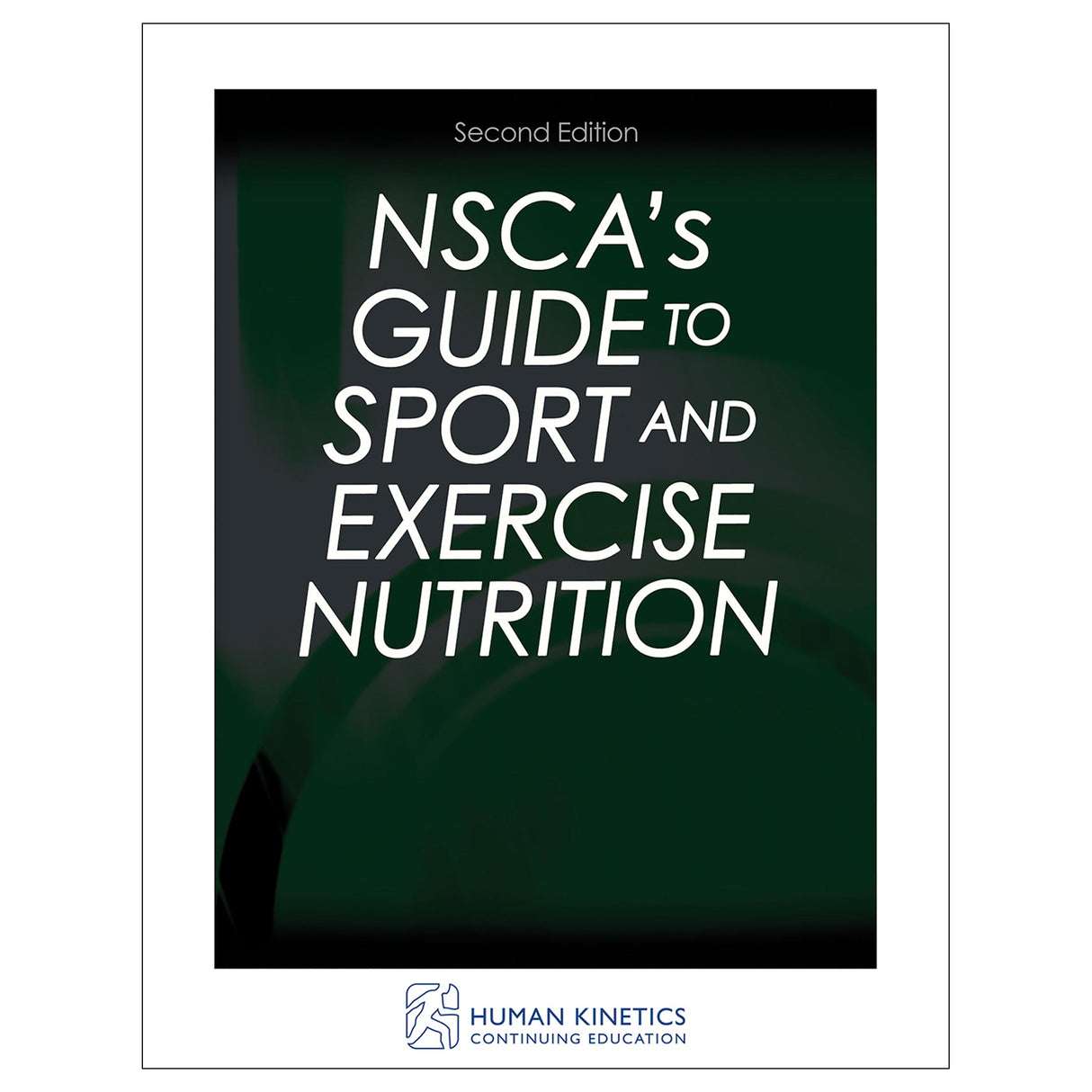NSCA's Guide to Sport and Exercise Nutrition 2nd Edition Online CE Course With Ebook
Author: Human Kinetics
$133.95 CAD
Human Kinetics strongly recommends that you complete your exam within the calendar year of your date of purchase to ensure approved credits do not expire for your organization.
- NSCA's Guide to Sport and Exercise Nutrition, Second Edition, ebook
- Online study guide
- Online continuing education exam
This course brings several contemporary sport nutrition issues to the forefront, including recent developments in relative energy deficiency in sport (RED-S), research related to carbohydrate mouth rinsing, the role of popular dietary supplements, preworkout supplements, and the use of protein and amino acids in improving aerobic endurance, strength, and power. Examine the topic of energy balance and the implications of undereating and overeating. Learn to use popular software and smartphone apps to assess nutrition status. Understand what macronutrients are and how they are metabolized, stored, and oxidized for energy. Use science-based recommendations for using macronutrients, micronutrients, and hydration to improve aerobic, anaerobic, and strength-based performance. Finally, use cutting-edge findings on nutrient timing based on the type, intensity, and duration of activity to help you understand how to recommend the correct nutrients at the ideal time to achieve optimal performance results.
The study guide includes learning activities, along with an answer key, to help you prepare for the course exam (composed of 100 multiple-choice questions).
Once you complete the course and pass the exam, you can print a certificate for continuing education credits.
Learning Objectives
- Identify the components of energy expenditure.
- Indicate the energy content and the thermic effect of protein, carbohydrate, and fat.
- Implement effective techniques for improving body composition.
- Explain how energy balance affects body composition and performance.
- Identify the methods and practices used to determine body composition.
- Describe the methods used to record and analyze food and fluid intake.
- Define the primary roles of macronutrients and their differences.
- Identify nutritional requirements for various modes of exercise.
- Optimize performance through proper ingestion of foods and fluids.
- Recognize the involvement of vitamins and minerals in sport and exercise nutrition.
- Discuss the role of supplements and ergogenic aids for strength, size, power, and aerobic endurance performance.
- Identify when food, fluids, and supplements should be consumed to optimize performance and indicate ideal quantities to consume.
- Provide recommended protocols for food and fluid intake.
- Recognize the signs and symptoms of disorders or diseases that may affect performance.
- Describe the components of motivation and behavior change.
- Develop and implement an athlete’s nutrition plan.
Audience
A continuing education course for fitness or nutrition professionals, strength and conditioning professionals, personal trainers, sport dietitians, and other certified fitness professionals.Ann Brown, PhD, CISSN
Chapter 2. Nutritional Needs Analysis
Marie A. Spano, MS, RD, LD, CSCS, CSSD
Chapter 3. Carbohydrate
JohnEric W. Smith, PhD, CSCS*D, CISSN
Chapter 4. Protein
David Barr, CSCS, PPSC*M, CISSN, TSAC-F, RSCC
Chapter 5. Fat
Lonnie Lowery, PhD, RD, LD, FISSN
Chapter 6. Fluids
Jennifer Bunn, PhD
Chapter 7. Vitamins and Minerals
Henry C. Lukaski, PhD, FSLAN
Chapter 8. Strength, Size, and Power Supplements
Colin Wilborn, PhD, FNSCA, CSCS, FISSN, and Tim N. Ziegenfuss, PhD, CSCS, FISSN
Chapter 9. Aerobic Endurance Supplements
Laurent Bannock, DProf, MSc, CSCS, FISSN, RNutr, SENr
Chapter 10. Nutrient Timing
Chad M. Kerksick, PhD, FNSCA, FISSN, CSCS*D, NSCA-CPT*D, and Shawn M. Arent, PhD, CSCS*D, FISSN
Chapter 11. Consultation and Development of Athlete Plans
Amanda Carlson Phillips, MS, RD, CSSD, FNAK





